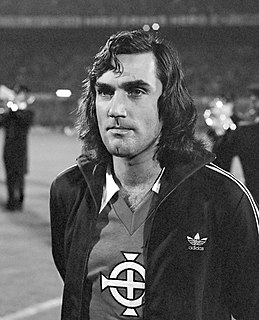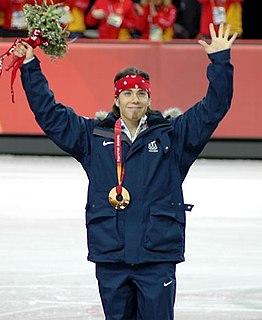A Quote by Kathryn Schulz
Thirty-three percent of all of our regrets pertain to decisions we made about education.
Related Quotes
If you have to pay about forty to forty-three percent of your income for housing, you also have to pay fifteen percent of your paycheck for the FICA for Social Security wage withholding. You have to pay medical care, you have to pay the banks for your credit card debt, student loans. Then you only have about twenty-five or thirty-five percent, maybe one-third of your salary to buy goods and services. That's all.
The Los Angeles Times reported that sixty-three percent of American families are now considered dysfunctional. Good. 'Cause that means when Armageddon really happens, thirty-seven percent of this population is going to lose their minds. Oh my God, the world is over! Us sixty-three percent? We're going to go, Hey... there's no one watching the Lexus dealership! We're going to the Apocalypse with leather and a CD changer! You guys have been great. Thank you.
The bottom quarter of the human population has only three-quarters of one percent of global household income, about one thirty-second of the average income in the world, whereas the people in the top five percent have nine times the average income. So the ratio between the averages in the top five percent and the bottom quarter is somewhere around 300 to one - a huge inequality that also gives you a sense of how easily poverty could be avoided.
The most valuable insight I have made about how people make decisions is that when they become skilled they don't have to make decisions - choices between options. Instead, they can draw on experience and the patterns they have acquired to recognize what to do, ignoring other options. This is the basis of the Recognition-Primed Decision (RPD) model my colleagues and I described thirty years ago.
Today, Americans of all political stripes are coming to a similar, sad realization about our president. A recent Fox News poll asked Americans 'How often does Barack Obama lie to the country on important matters?' Thirty-seven percent said 'most of the time,' 24 percent said 'some of the time,' and 20 percent said 'only now and then.' Just 15% said 'never.'
If I worried about that, I wouldn't have made a single record in my whole career. I think more and more, audiences appreciate something that is distinctive and different. Everyone always throws out this figure, 'Jazz is now down to three percent of the total record sales.' So does that mean it is not important? I think if we agree that human culture itself is important, then I think those three percent take on a greater significance.

































